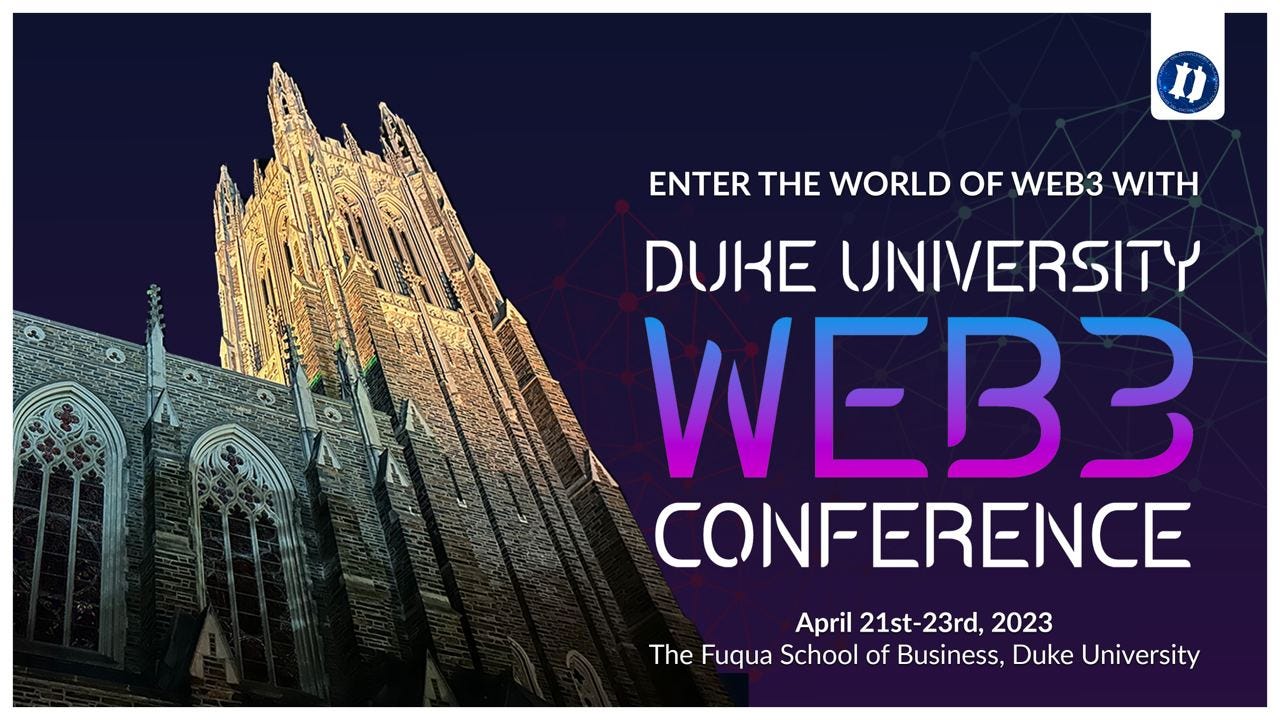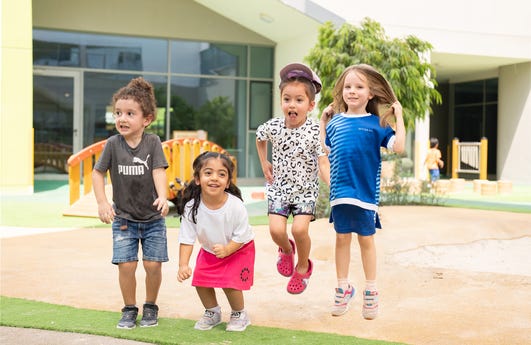Ed3 Weekly Issue #50: Things Go in Cycles
Web3 continues its cyclical trend out of NFTs and the metaverse and towards AI
Hello web3 and education frens,
Welcome to all my new subscribers from this past week. If you haven’t subscribed yet, click here, or use the button below. This will connect you with hundreds of others learning about the intersection of web3 and education on both the SubStack and LinkedIn platforms.
Here we are at big issue #50. Hard to believe that when I started this as a small passion project over a year ago that I’d still be here putting out newsletters. I want to thank all of you that have been along with me on this ride. Your weekly engagement with this newsletter, whether it be opening it up to read, commenting on LinkedIn/Twitter, or sharing it in your networks is what has kept me going.
What I have seen in the past year is that things go in cycles. Just in this past year, we have seen NFTs, metaverse, and now AI all go in and out of favor. More than being a predictor of trends, this tells me that things continue to be volatile and uncertain as we go through these disruptive times.
This brings me back to the intended mission of this newsletter, to provide educators with curated resources on web3. There is a lot of noise out there and I want us as educators to be part of shaping this new emerging world of technology-infused education. My hope is that this newsletter will serve as a useful resource for you as you navigate these changes.
I have always tried to bring a variety of resources to you–articles about the job market, trends in higher ed, how web3 exists in the world of fashion, entertainment and sports, and of course how schools are playing with this technology. I want to provide you with information about the entire web3 ecosystem so you can have the ability to make connections with all your students as they begin to build their individual relationships with this technology.
The phrase “we are still early” isn’t just a marketing ploy to get you to buy in. It reflects the idea that there is still a lot more change at hand. As trends cycle in and out it is important that we keep our eye on the prize–to provide deep learning experiences for our students. Knowledge of emerging technology has an important role in providing this deep learning.
Here are our resources for the week:
☠️ An article tries to explain why the metaverse keeps dying
🏫 Announcement on a conference at Duke University to talk web3
📑 A study details what schools in Dubai think about XR in education
🤖 Article reflecting on the pros and cons of AI in education
The Death of the Metaverse (Again)
Illustrated/Getty Images
This isn’t the first, and certainly won’t be the last, article about the death of the metaverse. Did the industry get ahead of itself with the level of expansion it experienced over the last couple of years? Most definitely. We also have to consider that the broader tech market is cutting back amidst a high-interest rate and inflationary environment.
The article goes into those details. It is an insightful summary of the current state of things. It looks at the capital-intense nature of metaverse building as well as how big corporations are approaching their metaverse efforts. This is an important read to familiarize yourself with the current cycle of metaverse contraction before the next big push.
Web3 Conference for Higher Ed
Image from Duke University
Overall web3 has continued to trend down over the past 6 months. That is not the case in higher ed. I have observed more interest than ever in offering courses on blockchain, AI, and the XR. In addition, the growth of the “meta-versity” continues to go up as well.
This announcement of a web3 conference at Duke University’s School of Business is part of this trend in higher ed. The purpose of this conference is to “allow attendees to engage in technical and functional discussions surrounding the latest developments in the industry.”
This appears to be a broader push by Dule to position itself in the web3 space. Hermano Crubellati, co-president of the Fuqua Blockchain Club, says, “When we look back at this year’s conference, we will say, ‘That was the year that everything changed. That was the year we established ourselves as the educational hub for Web3 in the Southeast United States.’”
A Study in Dubai About Metaverse Trends in Schools
Image provided by Citizens School, Dubai
Dubai has positioned itself as a world leader when it comes to developing metaverse technology. Their government website features a section on its metaverse strategy as part of its overall digital transformation strategies. It states, “The Dubai Metaverse Strategy aims to turn Dubai into one of the world’s top 10 metaverse economies as well as a global hub for the metaverse community. The strategy aims to build on Dubai’s achievement of attracting more than 1,000 companies in the fields of blockchain and metaverse.”
This article about a study by the Citizens School titled ‘The Future of Learning’ goes into more detail about how parents feel about the metaverse in their schools. According to the study, 69% of parents believe artificial intelligence and virtual reality will have the largest impact on their children’s future, followed by cryptocurrency and the metaverse (54%). These are very interesting statistics and reflect how future-forward their education system is.
Talking ChatGPT
Image from EdTech Magazine
This newsletter thus far has focused primarily on blockchain, NFTs, and the metaverse. Chatbots and artificial intelligence are also part of the broader web3 ecosystem. The content of my newsletter will start to reflect the shift in trends away from those previous topics and toward AI. This doesn’t mean I’m going all in on AI, it just means that will start balancing my blockchain-based content with other future forward technologies.
This article is a good start. It asks the question “How will it really change things in education?” The author goes through the different topics at hand, what are chatbots, plagiarism, how AI can be a helpful tutor, and using AI to teach about AI. What the article also points out is that each student’s experience will be different as schools are approaching the use of chatbots very differently. It is still early so I will be sharing more resources about how the relationship with AI in schools evolves.
Thank you for stopping by for another issue of my web3🤝education newsletter. If you’re on LinkedIn you can check out a version of this newsletter on my LinkedIn page and give me a follow. You can also link to all my work by checking out my blog or give me a follow on Twitter.








